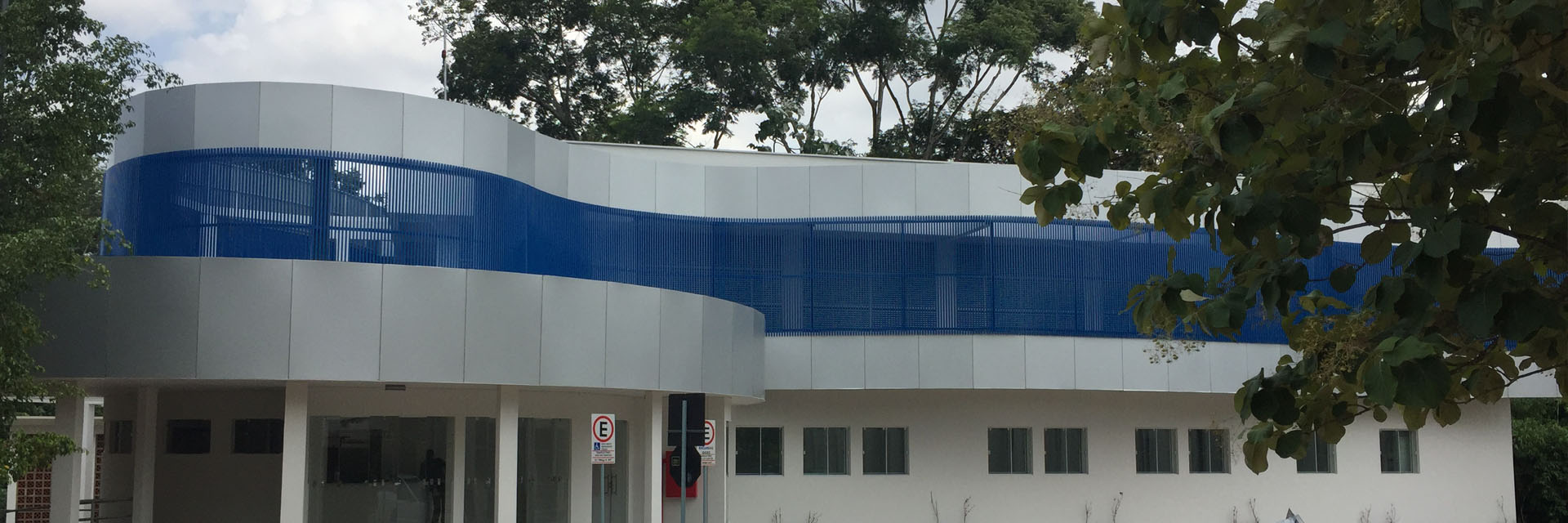We have long-standing ties with Brazil. In 1974, when our founder, Dr. Charles Mérieux, learned about the deadly meningitis A epidemic in Brazil, he traveled there to meet the Minister of Health, Paulo Almeida Machado. Following that meeting, the Institut Mérieux and Mérieux Foundation joined forces to stop the epidemic and supplied 103 million vaccines: enough for the Brazilian population. It was the biggest public health intervention ever to be organized at the time.
Access to diagnostics
The creation of the Charles Mérieux Center for Infectious Disease and the Rodolphe Mérieux Laboratory in 2016 marked an important step in the fight against viral hepatitis, a major public health problem in the Amazon. With a high-level biosafety laboratory (BSL3), the first in the Amazonian region, the Rodolphe Mérieux Laboratory also contains three BSL2 laboratories and areas dedicated to molecular biology and the production of plasmid.
Since 2018, molecular biology techniques for monitoring patients infected with viral hepatitis have been installed. Today, viral load detection in patients carrying the hepatitis Delta virus is carried out, thanks to the partnership between the Rodolphe Mérieux Laboratory (FUNDHACRE, Rio Branco) and the Molecular Virology Laboratory (Fiocruz, Porto Velho).
The Rodolphe Mérieux Laboratory in Rio Branco was the first facility in the state of Acre to take charge of COVID-19 tests, enabling the identification or confirmation of results from samples from the state and from border towns in Peru and Bolivia during the first year of the epidemic. More than 80,000 molecular biology tests have been carried out in this laboratory since March 2020.
Enhancing research capabilities
The Institute of Tropical Medicine of the University of São Paulo is receiving funding to launch a pilot research project with two other members of the GABRIEL network. The aim is to assess the impact of the COVID-19 pandemic on the spread of antimicrobial and biocide resistance from wastewater to the environment.
We are also engaged in an international partnership with activities in Brazil:
- The ZikaPLAN Consortium, an international initiative created in response to the Zika virus epidemic and funded by the European Union (grant agreement 734,584). As part of this, the project organised a theoretical and practical workshop in 2021 on molecular and serological diagnostic tests for arboviruses.
- GloPID-R, a global alliance of research funders that accelerates the response to new or re-emerging epidemics with pandemic potential. This alliance includes the participation of key players in Brazil: the Oswaldo Cruz Foundation, the Butantan Institute and the São Paulo Research Foundation (FAPESP). Since 2015, we have been coordinating the GloPID-R Secretariat in partnership with Oxford University and with the financial support of the European Union (via its Horizon 2020 research and innovation program).
Following the COVID-19 epidemic, we took part in the NOSO-COR project, a prospective non-interventional hospital-based study whose objective is to describe and document cases of COVID-19, nosocomial transmission in hospitals and infection prevention and control practices and policies in hospitals. In Brazil, this study is implemented at the Hospital das Clinicas.

